May 30, 2025 | 15:10 GMT +7
May 30, 2025 | 15:10 GMT +7
Hotline: 0913.378.918
May 30, 2025 | 15:10 GMT +7
Hotline: 0913.378.918
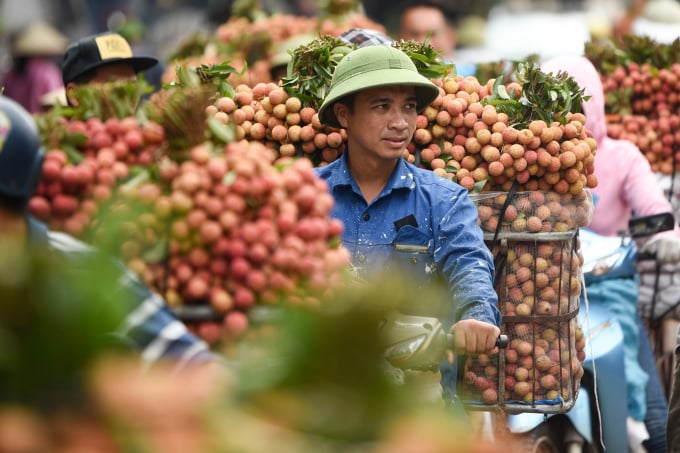
Vietnamese lychee has been exported to many international markets including highly demanding ones. Photo: TL.
The Ameii Vietnam Joint Stock Company (Ameii) officially started exporting agriculture products in 2018.
However, since it was part of Datcom Company – a company specialising in information technology, it engaged in farming product exports.
Ameii chairman Nguyen Khac Tien said that before working at Datcom Company, he had spent dozens of years working in the agriculture sector, particularly the sugarcane industry.
“When I participated in a sugarcane project for people who moved from hydropower plant’s reservoir, I realised that demand for farming products was always essential because agriculture was the core of socio-economic development,” he said.
Tien also so saw a huge potential of agriculture production, particularly in term of cultivation, processing and markets. So, he and his colleagues decided to invest in this field.
Tien added that it took them nearly three years to find where to start. They spent a lot of time and labour studying farming products and markets.
Finally, they decided to approach demanding markets with speciality fruits. For their first project, they chose rambutan to export to New Zealand.
Rambutan at that time was expected to help Ameii enter New Zealand and then, New Zealand would expectedly help them enter other markets, Tien shared.
“Our strategy is to use the most typical suitable to open the gate to a new market. When we could gain our partners’ trust, we would have chances to export other products,” Tien said.
In 2013, Vietnamese rambutan had many advantages for export relating to harvest, quality and prices.
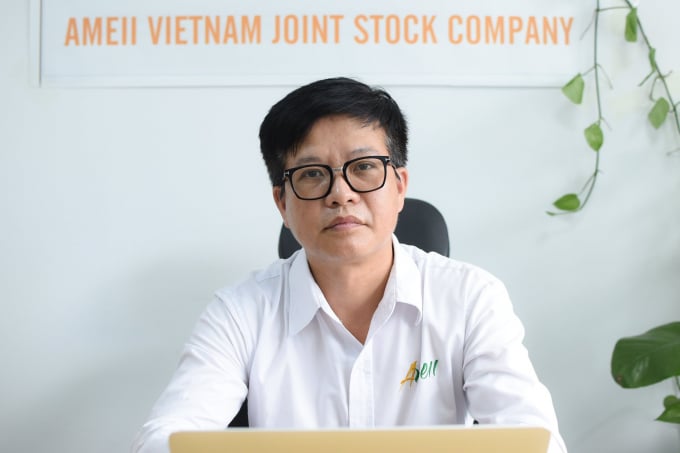
The Ameii Vietnam Joint Stock Company chairman Nguyen Khac Tien. Photo: Tung Dinh.
Ameii at that time became the second company in Vietnam that could export rambutan to New Zealand.
However, after that, its partner shifted to another business and announced it stopped importing farming products, which forced Ameii to seek an alternative way. As a result, they decided to export durian to Japan in 2017.
“Pests are usually found in durian. We have to remove all the pests from the durian before exporting the fruit to Japan. However, in some cases, when the fruit arrived in Japan, we still detected some pests, so we had to pay VND 8 million to remove a pest there,” Tien said.
Ameii and its Japanese partners asked for help from scientists and relevant agencies of the two countries to deal with the durian pests. Fortunately, thanks to their help, no pest was found in exported durian anymore.
In another case, the company had to give its partners VND 600 million as compensation while the durian that was exported to Japan failed to meet the importer’s requirements. Farmers who supplied the durian to the company used fertiliser to boost durian growth, as a result, many durian fruits looked big but still green.
To tackle this problem, Tien said that the company paid more attention to quality management. They employed high-skilled experts to evaluate and select durians for export.
Until now, the company exports about 10-14 tonnes of durian to Japan weekly, sometimes up to 20 tonnes per week.
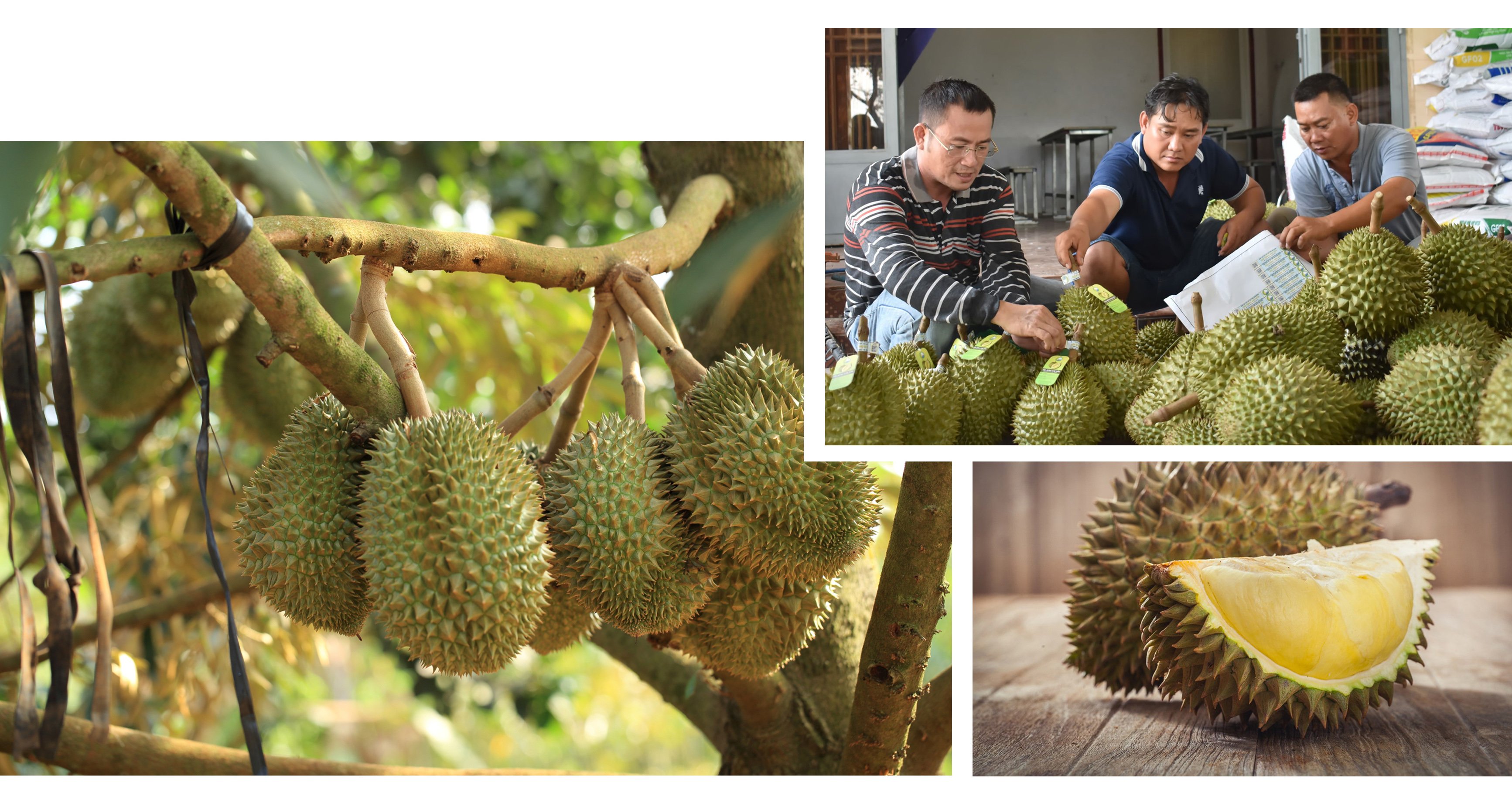
Qualified durians are selected for export. Photo: Tung Dinh.
In 2019, Ameii and its partners started looking for an opportunity to bring Vietnamese lychee to Japan. A year later, it for the first time exported more than 30 tonnes of lychee to Japan.
The amount was modest for some reasons. The first reason was due to the COVID-19 pandemic, only one Japanese expert could go to Vietnam to accredit the lychee for export. Secondly, there was only a chamber for methyl bromide fumigation to treat the lychee. Thirdly, the amount of lychee qualified for export last year was not large.
With those lessons learnt, this year, Ameii opened a chamber for methyl bromination in Hai Duong Province which has a capacity of 2.5 tonnes per batch and three batches daily.
Late last month, Ameii became the first Vietnamese company that exported lychee to Japan this year. Until now, it exported nearly 50 tonnes of lychee to Japan and the company planned to export a total of 300 tonnes this year.
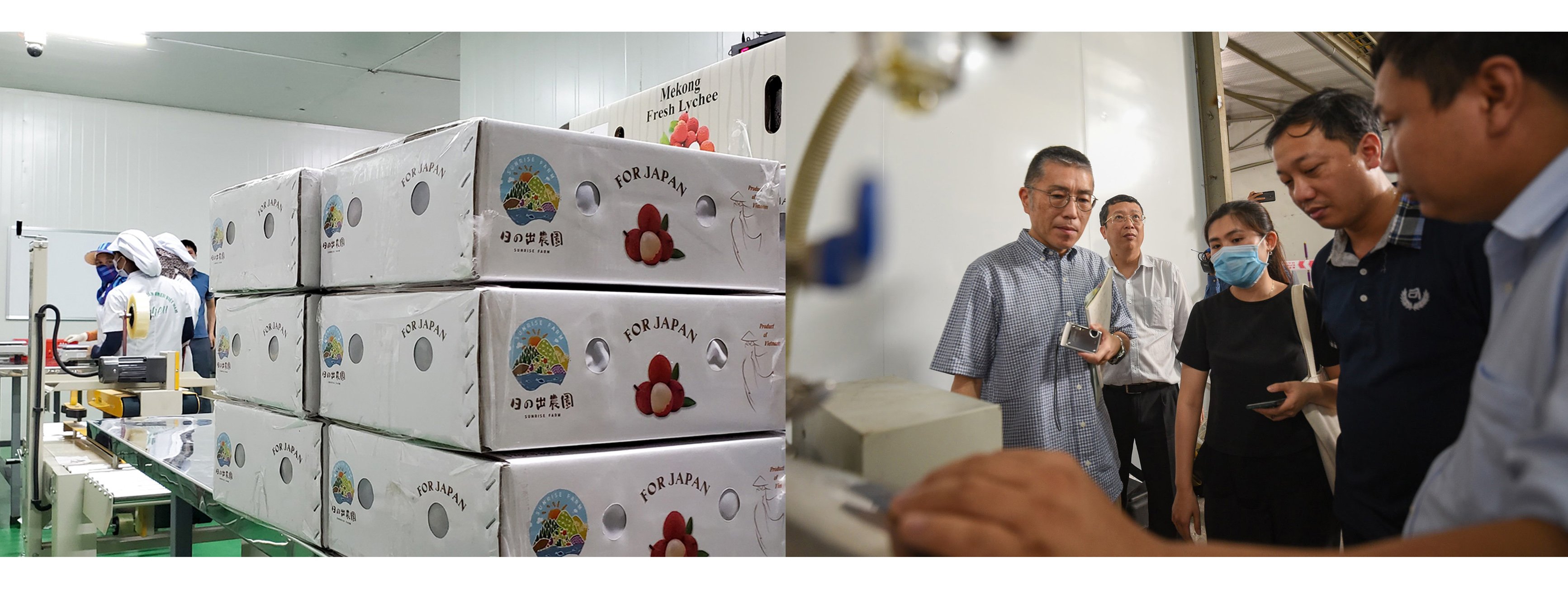
Ameii chairman said that besides fresh fruits and shallow processed ones, the company would develop deep-processed products. The company planned to build a 5-ha processing plant in Hai Duong Province.
“Once the plant goes operation, Ameii would provide frozen products, vegetable powder and dried fruits,” he said.
The company paid much attention to helping local workers. Those who worked at Ameii’s workshop in Hai Duong province received VND250,000 -300,000 daily, quite better than the average payment.
Ameii wanted to develop a high-quality material zone and have a sustainable linkage with farmers. Last year, it established a co-operative in Hai Duong province with 37 members specialising in lychee production. The company committed to offering reasonable prices to buy the co-operative members’ products.
“We expect to attract more and more farmers to the linkage to form a sustainable material zone,” Tien said.
In future, the company wanted to offer farming tourism services as seeing Hai Duong province had many advantages, Tien said.
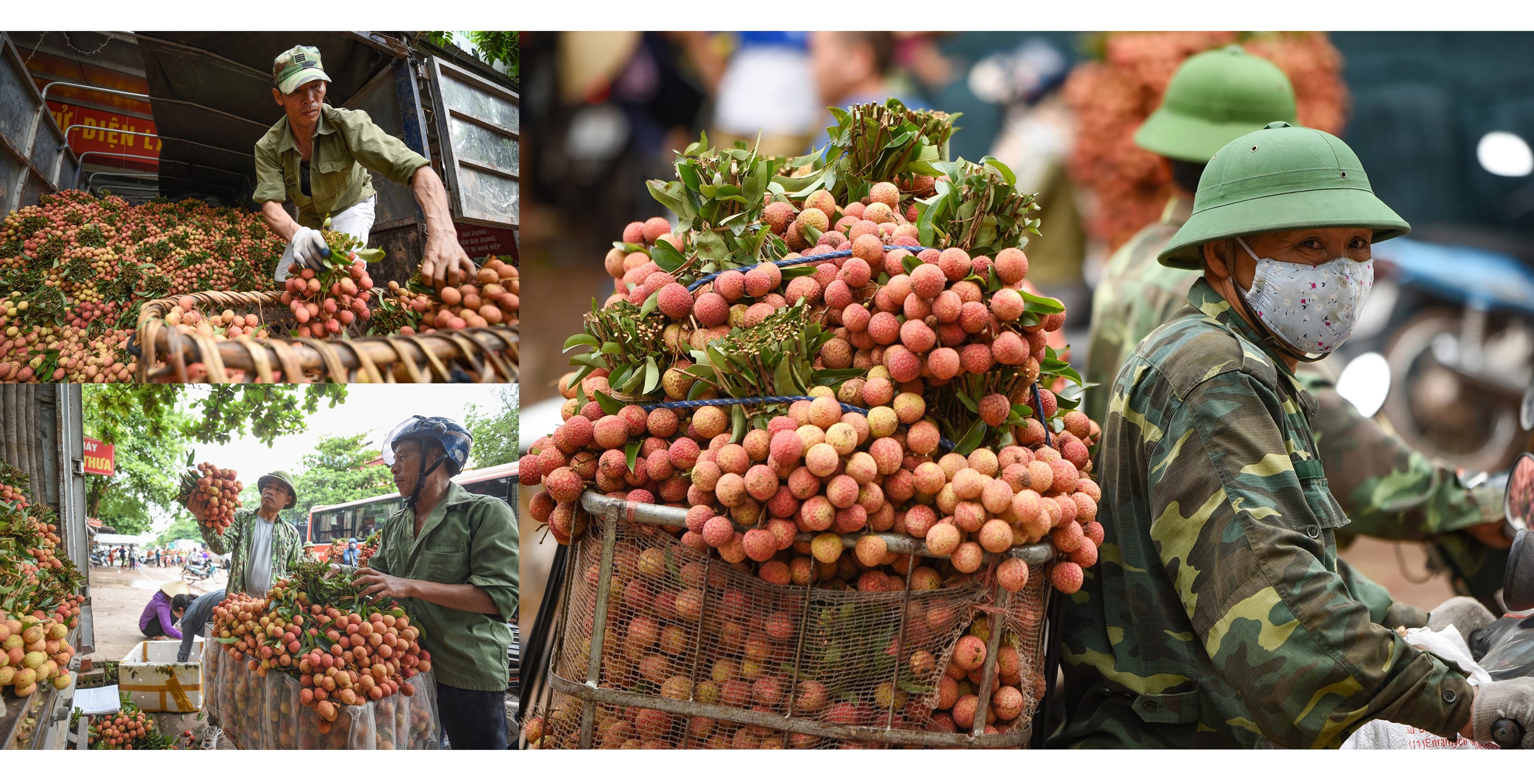
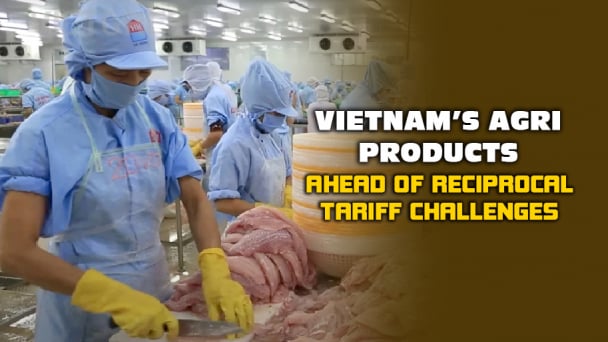
(VAN) Reciprocal tariffs are exerting pressure on U.S. exports, prompting Vietnamese firms to shift their focus to Muslim markets, Thailand, and Brazil.
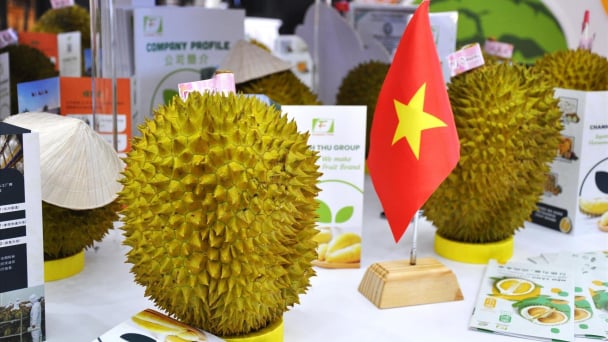
(VAN) A free booth for two years at Xinfadi, Beijing's largest wholesale market, will be allocated to Vietnam's agricultural products.
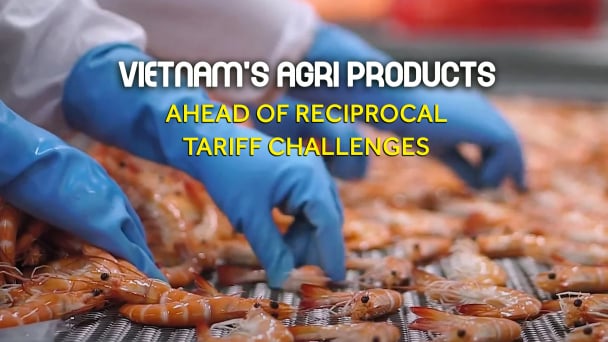
(VAN) Vietnamese shrimp exporters are actively looking for alternative markets and accelerating shipments to the United States in response to the pressure of impending reciprocal tariffs. This is occurring during a temporary tariff suspension.

(VAN) The import-export turnover between Vietnam and Singapore rose amid a trade rebound, with machinery, electrical equipment, and fuels making up the majority of the transaction value.

(VAN) Director General of the General Administration of Customs of China, Ms. Sun Mai Jun, has pledged to implement measures that will ease the import process for Vietnamese agricultural products.

(VAN) Although Vietnam is still increasing its coffee exports, the industry is currently in the process of determining market strategies in response to the U.S. imposition of reciprocal tariffs.

(VAN) With rising demand in Muslim-majority countries, Halal certification is becoming a critical passport for Vietnamese agricultural products seeking sustainable market access and consumer trust in the Middle East and Africa.